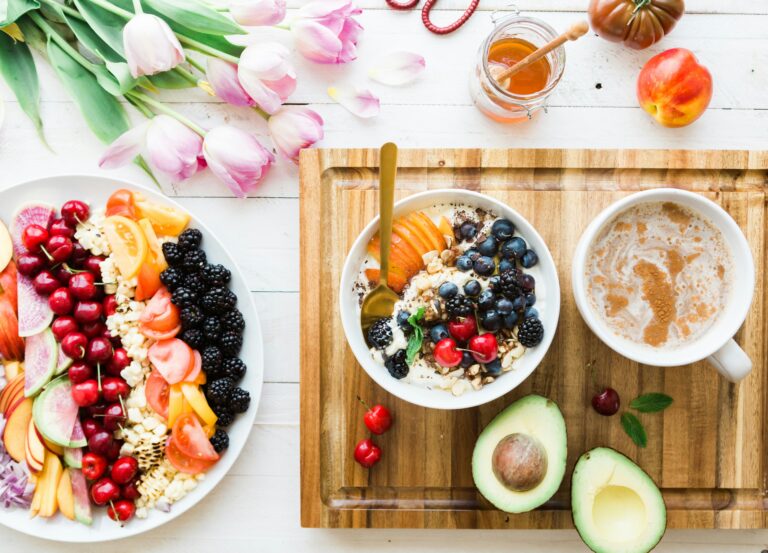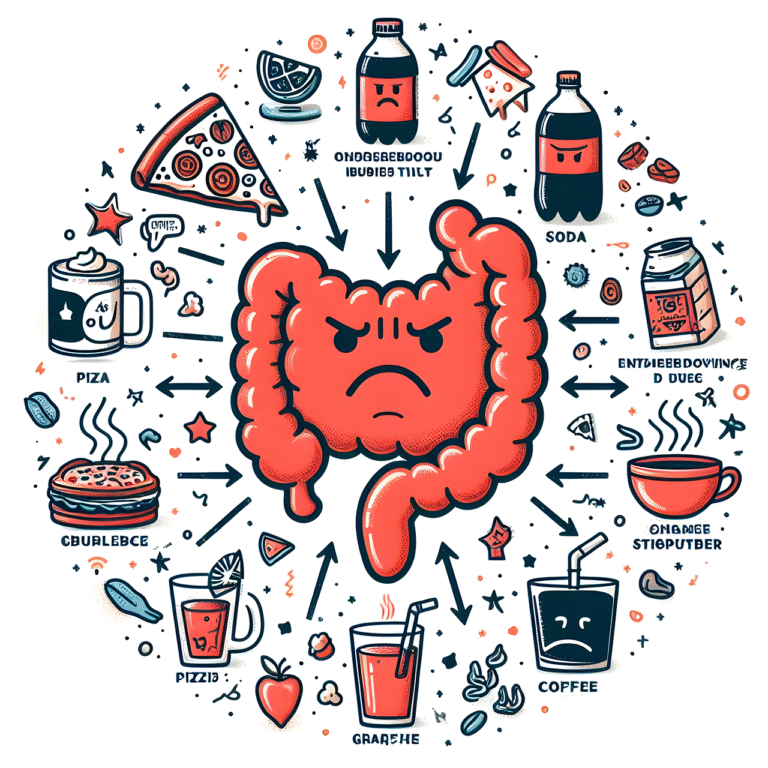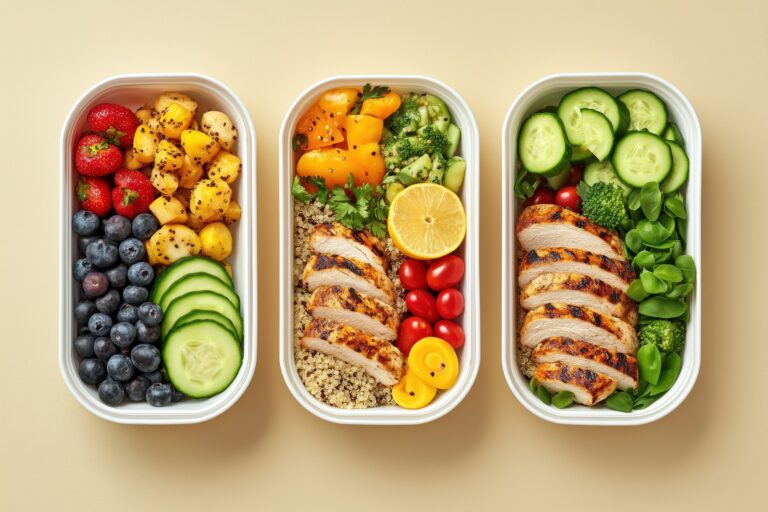The New Science of Weight Loss in 2025
How Weight Loss Research Has Evolved
In 2025, weight loss is no longer about generic diet plans or endless hours on the treadmill. Scientific breakthroughs have reshaped our understanding of how the body stores and burns fat. Researchers now focus on personalization, metabolism, behavioral psychology, and tech-based monitoring.
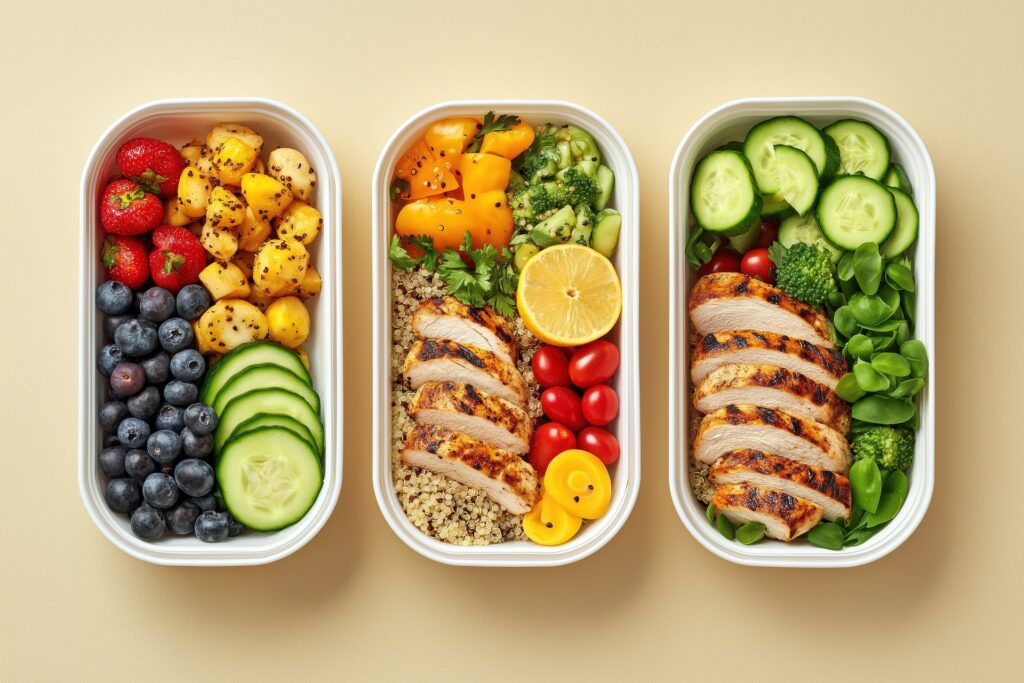
Nutrigenomics, AI-driven algorithms, and hormonal science have replaced outdated calorie-counting models. The integration of biological, psychological, and technological data is making weight loss more efficient, sustainable, and customized than ever before.
What Makes a Hack Truly “Science-Backed”
Not all weight loss advice is created equal. A hack qualifies as “science-backed” if it meets these criteria:
- Peer-reviewed studies validate its effectiveness.
- Clinical trials show statistically significant results.
- It aligns with 2025 nutrition and health guidelines.
- It’s safe, evidence-based, and adaptable to individuals.
Hack #1 – Personalized Nutrition with AI Dieting Tools
How AI Customizes Your Diet
Artificial Intelligence (AI) is transforming the way we eat. In 2025, apps like NutriSync AI and MetaMeal Planner analyze your genetics, microbiome, sleep patterns, glucose levels, and daily activities to generate real-time, hyper-personalized diet plans.
They adjust your caloric intake, macros, and nutrient timing to support optimal fat loss based on how your body actually works—not a one-size-fits-all chart.
Popular AI Nutrition Apps in 2025
Here are some top AI-powered nutrition tools used in 2025:
| App Name | Key Features |
| NutriSync AI | DNA-based meal plans, real-time blood sugar tracking |
| MetaMeal Planner | AI recipes matched to your gut health and energy levels |
| DietDesigner Pro | Links with wearables for on-the-go recalibration |
These tools even send you personalized grocery lists and meal prep tips.
Hack #2 – The Rise of Metabolic Flexibility
Why Switching Fuel Sources Burns More Fat
Metabolic flexibility is your body’s ability to switch between burning carbohydrates and fat efficiently. In 2025, it’s a buzzword in the fitness world for good reason. When you become metabolically flexible, you maximize fat-burning potential, improve energy levels, and prevent insulin resistance.
Exercises That Enhance Metabolic Flexibility
To build metabolic flexibility:
- Alternate between fasted low-intensity cardio and high-intensity interval training (HIIT)
- Combine endurance training with resistance workouts
- Practice intermittent fasting, especially early in the day
These methods teach your body to toggle between fuel sources like a hybrid engine.
Hack #3 – Early Time-Restricted Eating (eTRE)
The Circadian Rhythm and Fat Loss
Unlike generic intermittent fasting, eTRE aligns your eating window with your body’s internal clock—typically from 7 a.m. to 3 p.m. This practice enhances insulin sensitivity, regulates appetite hormones, and optimizes digestion.
Scientific studies in 2025 confirm that eTRE supports weight loss even without reducing total calories.
Sample eTRE Meal Schedule
| Time | Meal |
| 7:00 AM | Protein-rich breakfast with fiber and healthy fats |
| 11:00 AM | Balanced meal with lean protein, whole grains, and veggies |
| 2:30 PM | Light snack (nuts, Greek yogurt, or boiled eggs) |
No food after 3 p.m. – only water, herbal teas, or black coffee.
Hack #4 – GLP-1 Agonists: A Medical Breakthrough
How These Medications Support Weight Loss
Drugs like semaglutide (Wegovy) and tirzepatide (Zepbound) mimic the GLP-1 hormone, which reduces appetite, slows gastric emptying, and promotes satiety. In 2025, these are prescribed under medical supervision and combined with lifestyle coaching.
Risks and Guidelines for Safe Use
While highly effective, they may cause side effects like nausea, constipation, or gallbladder issues. They should never be used recreationally or without clinical oversight.
Safe usage protocols in 2025 include:
- Medical screening
- Weekly check-ins with endocrinologists
- Lifestyle changes alongside medication
Hack #5 – NEAT Optimization: Burn Calories Without Trying
Understanding Non-Exercise Activity Thermogenesis
NEAT stands for calories burned from daily, non-exercise movements—like walking to the kitchen, fidgeting, or taking the stairs. In 2025, increasing NEAT is a go-to method for sustainable fat loss.
Simple Ways to Increase NEAT Daily
- Use a standing desk
- Take 5-minute walks every hour
- Do chores manually (ditch the robot vacuum!)
- Fidget consciously: tapping your foot burns more than you think
Hack #6 – Smart Wearables That Track Fat Burn in Real-Time
Top Fat-Burn Tracking Devices in 2025
In 2025, smart wearables go far beyond counting steps or tracking heart rate. Devices like the LumenX, FitIQ Max, and AuraTrack Pro use advanced biosensors to analyze your respiratory exchange ratio (RER), blood glucose, skin temperature, and even ketone levels to detect when your body is burning fat vs. carbs.
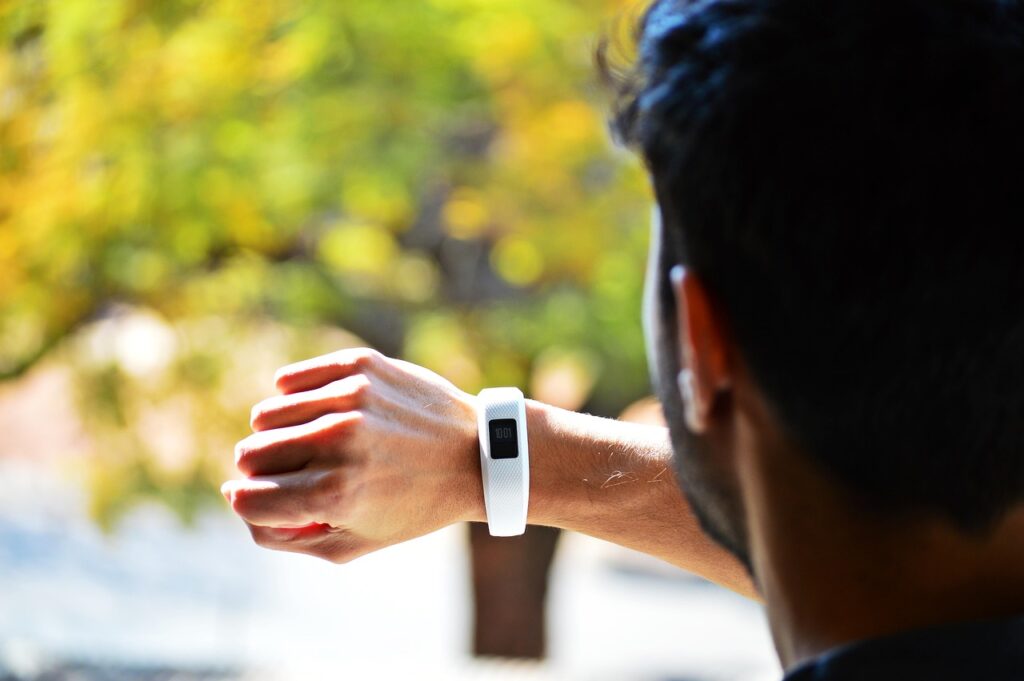
These insights help you adjust your workouts, meals, and sleep for maximum fat loss efficiency.
How to Use the Data to Your Advantage
With real-time feedback, you can:
- Shift workout intensity based on fat-burn zones
- Time meals to align with peak metabolism
- Sleep better by managing stress and cortisol levels
- Avoid overtraining and optimize recovery
Wearables also connect with apps that provide AI coaching and weekly performance breakdowns.
Hack #7 – Gut Microbiome Rebalancing for Sustainable Weight Loss
Probiotics and Prebiotics That Promote Fat Loss
The gut is now considered the “second brain,” especially when it comes to weight. A balanced microbiome helps regulate metabolism, suppress hunger, and reduce inflammation.
In 2025, targeted probiotic strains like Lactobacillus gasseri, Bifidobacterium breve, and Akkermansia muciniphila are linked to decreased belly fat and appetite.
Pairing these with prebiotics like chicory root, resistant starch, and green bananas feeds good bacteria and enhances gut health.
The Link Between Gut Health and Cravings
Imbalanced gut flora can trigger cravings for sugar and refined carbs. By improving your microbiome:
- Hunger hormones like ghrelin decrease
- Satiety hormones like leptin increase
- You’re less likely to emotionally eat or binge
Consider microbiome testing kits to customize your supplement stack.
Hack #8 – Cold Exposure Therapy (Cryotherapy)
How Cold Boosts Brown Fat and Calorie Burn
Cold exposure activates brown adipose tissue (BAT), a type of fat that burns calories to produce heat. In 2025, cryotherapy is mainstream in wellness centers—and it works.
Brief exposure to extreme cold (below 60°F or 15°C) boosts norepinephrine, improves insulin sensitivity, and can burn hundreds of calories in a single session.
DIY Cold Therapy Options at Home
Don’t want to hit the cryo chamber? Try these at-home alternatives:
- Cold showers (2–3 minutes daily)
- Ice baths (1–2 times a week)
- Outdoor walks in cool weather with minimal clothing
- Cold packs applied to upper back and neck
Make sure to acclimate slowly and consult your doctor if you have circulation issues.
Hack #9 – Resistance Training Over Cardio
Why Muscle Mass Is Crucial for Fat Loss
Muscle is metabolically active, meaning it burns more calories at rest than fat. Resistance training not only sculpts your physique—it accelerates fat loss and prevents rebound weight gain.
In 2025, strength training is prioritized over steady-state cardio in almost every successful fat-loss program.
Benefits include:
- Higher resting metabolic rate (RMR)
- Improved insulin sensitivity
- Hormonal balance (e.g., testosterone, growth hormone)
- Long-term weight maintenance
Sample 3-Day Resistance Training Plan
| Day | Workout Focus | Example Exercises |
| Day 1 | Lower Body | Squats, Lunges, Deadlifts |
| Day 2 | Upper Body | Bench Press, Pull-Ups, Rows |
| Day 3 | Full Body + Core | Kettlebell Swings, Planks, Dumbbell Thrusters |
Use progressive overload (increase weight/reps over time) to keep building strength and shedding fat.
Hack #10 – Cognitive Behavioral Therapy (CBT) for Food Cravings
How CBT Rewires Your Brain for Long-Term Success
CBT addresses why you overeat—not just what you eat. It teaches you to identify triggers, break unhealthy patterns, and replace them with supportive behaviors.
In 2025, CBT is one of the most recommended non-pharmaceutical interventions for emotional eating, binge eating disorder (BED), and yo-yo dieting.
Key techniques include:
- Journaling thoughts around food choices
- Practicing delay and distraction tactics
- Setting achievable goals and reinforcing wins
Where to Access CBT for Weight Management
Options include:
- Online platforms like Noom CBT+ and MindStrong Coach
- Virtual therapists and group coaching programs
- Integration in health insurance plans and workplace wellness apps
Most effective when combined with nutrition coaching and physical activity.
Conclusion: Sustainable Weight Loss Starts with Science
In 2025, fad diets and starvation plans are out. Science-backed strategies are in. With advances in AI, gut health research, behavioral therapy, and metabolic science, weight loss is now smarter, faster, and more sustainable than ever before.
You don’t need to do everything at once. Start small, stay consistent, and let the science lead your transformation.
FAQs About 2025 Weight Loss Hacks
1. Are these weight loss hacks safe for everyone?
Most are safe, but always consult with a healthcare provider—especially if using medications or trying cold exposure therapy. Personalization is key.
2. Can I combine multiple hacks for better results?
Absolutely. In fact, combining AI-driven nutrition with resistance training and eTRE often leads to accelerated results.
3. Do I need to follow all 10 hacks?
No. Start with 2–3 that fit your lifestyle and build from there. Overwhelm can sabotage consistency.
4. How fast can I expect results?
Results vary. Most people see improvements in energy, sleep, and weight within 2–4 weeks, especially when tracking progress.
5. Are GLP-1 drugs like Wegovy necessary?
Only in certain cases. They’re not a first-line solution and should be used under medical supervision.
6. What’s the most underrated hack of 2025?
NEAT optimization—burning calories through small daily movements—is simple yet surprisingly effective.
Transform Your Body: The Benefits of Regular Gym Workouts
The Relationship Between Gym Workouts and Mental Health
10 Essential Tips for First-Time Gym Goers
Reclaim Your Power: Top Health and Fitness Habits to Live Your Best Life

